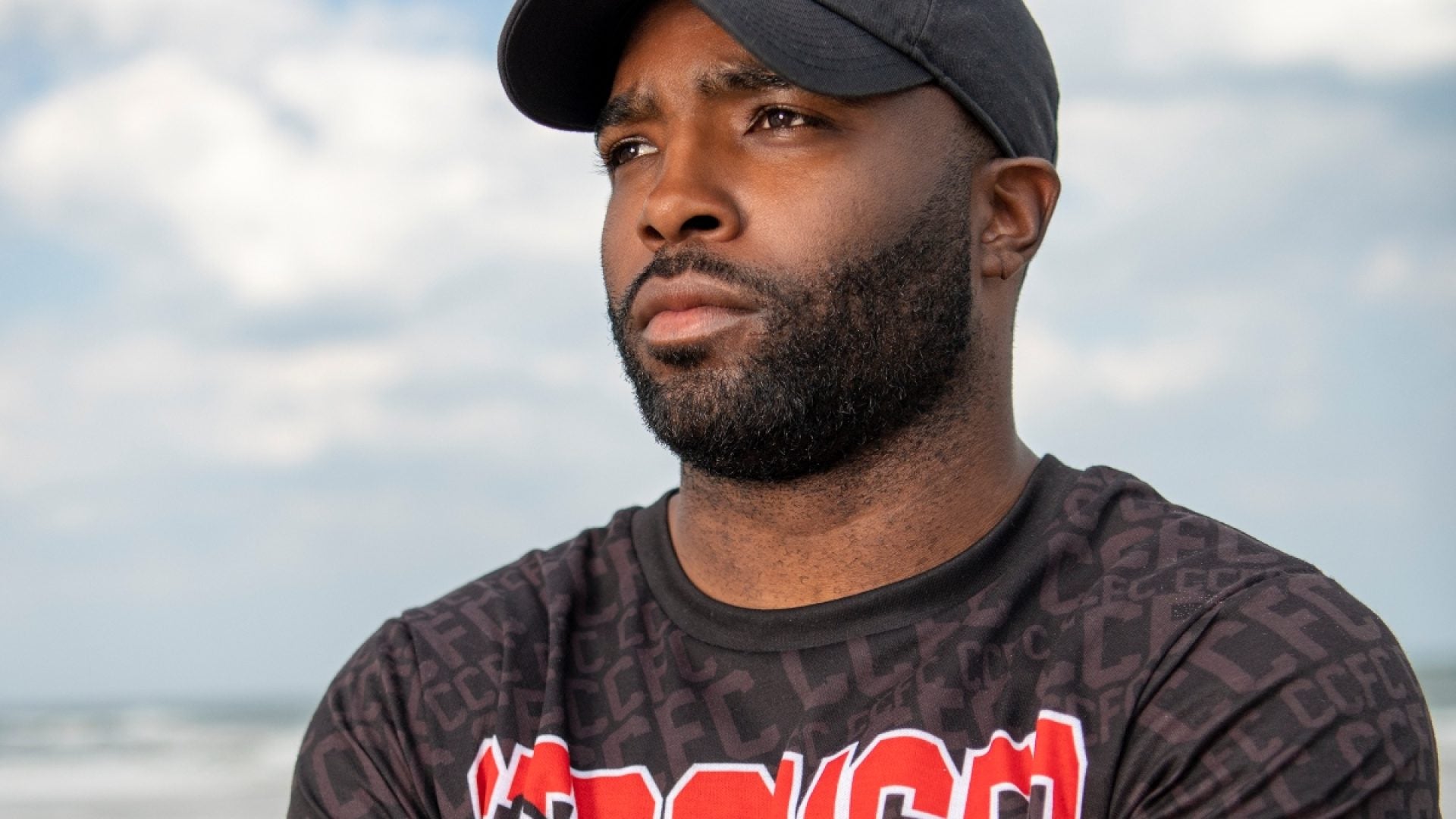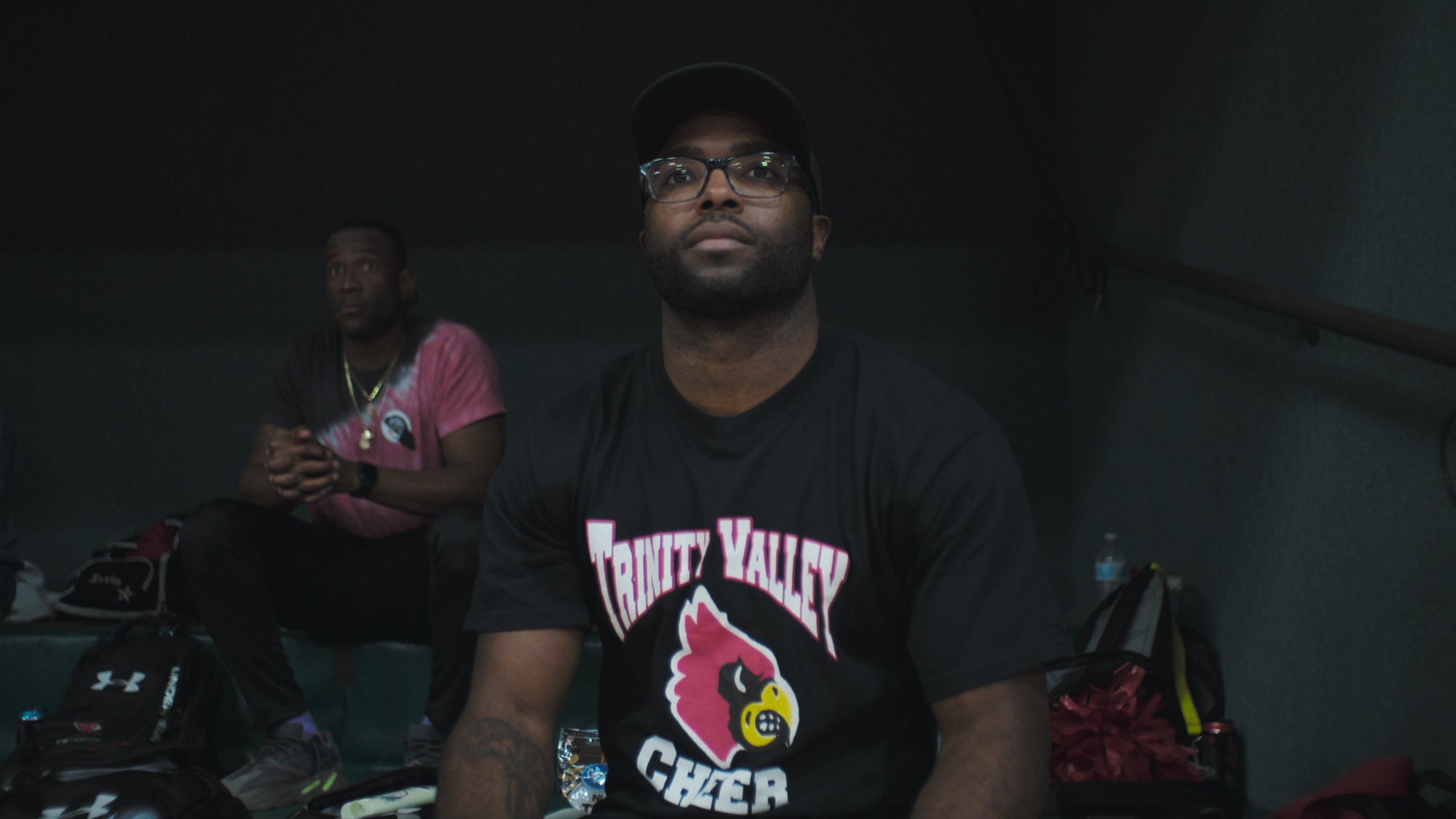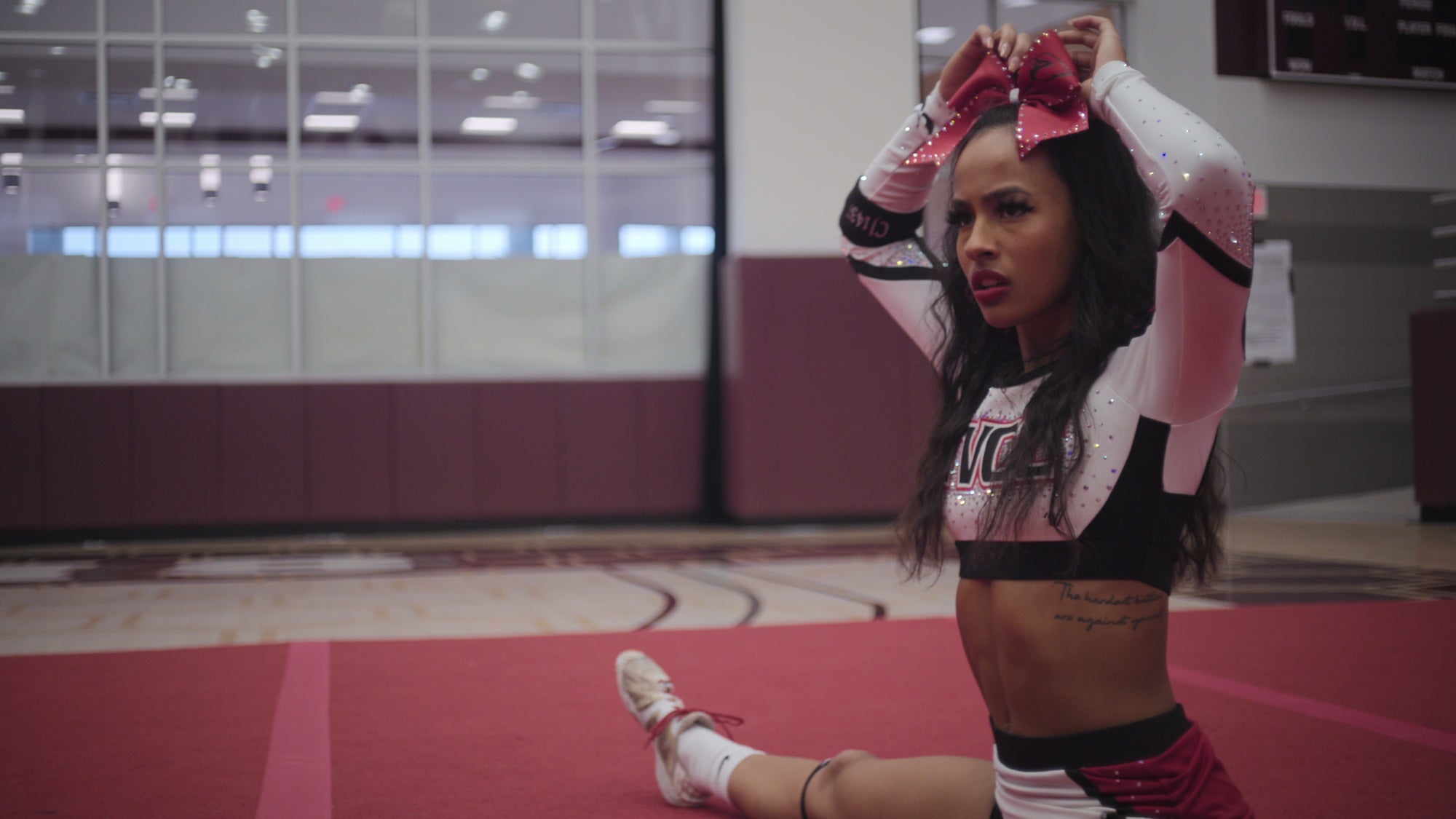
Vontae Johnson knows cheerleading relies on bonds. He creates connections as the head coach of the Trinity Valley Cardinals. The second season of the Netflix docuseries Cheer follows the team as they work to build human and spiritual pyramids.
“The difference between cheer and football was we can get away in football with missing one block. You can’t get away with dropping one stunt [in cheerleading],” he told ESSENCE.
Johnson first learned how heavily teamwork impacted the sport shortly after swapping the football field for the cheer mat. “In our divisions, it’s so tight, you know? So close, you can’t get away with certain little things,” he explained.
Pursuing the National Cheerleaders Association’s Collegiate National Championship requires everyone to move in sync, from parents, to alumni, to coaching staff. It’s one band, one sound – on steroids.

Judges use subjective criteria to determine scores at cheer competitions, evaluating teams on ambiguous elements of their routines that go beyond technical proficiency. Exaggerated winks, forceful hip pops, and spirited shoulder shimmies are consistently appreciated but they aren’t always the most natural expressions of enthusiasm for every person on the team. Johnson helped select team members find their own path to creating an attention grabbing performance throughout the second season of Cheer. The goal was to stand out without losing yourself – whoever that might be.
Viewers watched Johnson guide DeVonte ‘Dee’ Joseph, an impressive tumbler who is not down with dancing to finding a way to show up for himself and his teammates by appealing to his inner champion.
“Dee does not like to lose. He wants to succeed that everything he does, he’s an exceptional student he has great traits,” said Johnson.
“I want him to be comfortable, but I also want him to understand that, no, one’s here to judge you. We love you for who you are, no matter what. I think that’s a big, big, important part of being able to just go out there and perform because at the end of the day, you’re helping yourself and you’re helping the team to possibly get closer to a championship,” he explained.
“One of my priorities is to make everyone feel comfortable and that includes Black males as well. So I do allow them to be able to be comfortable in their shoes and be able to express themselves for who they are.”
Leading can be fun. Johnson participates in hands-on training, laughs at athletes’ antics, and participates in heated games of one-on-one. The task of trying to get his team to victory can also be challenging.
“Not everything’s gonna be handed to you, you don’t just go in and win,” he said. “Sometimes you will have to learn from failure as well. As a coach, obviously, it’s definitely more nerve wracking than being an athlete.”
Bonds help Johnson push past the nerves each season. He finds motivation in “the connection I have with the athletes and their parents,” he said.

One parent shared how relieved she was to be sending her son off to a coach she felt connected to on the show.
“I didn’t want them to come here and just feel like I was just getting an athlete to help me win the championship,” he said. “I wanted them to realize that I’m gonna help you in everything in life, and I’m gonna help push you to be better and everything you do at school.”
One of the things he pushes his athletes to do is develop leadership skills. Throughout the season, athletes encourage and console one another in between expected monologues about how badly they want to trounce the competition. Jada Wooten, who the show devotes a significant amount of time to, is particularly committed to helping her fellow Cardinals. She actively recruited Angel Rice on social media, policed first years at study sessions, assuring her teammates that they could recover from any fumble. “
“Ya’ll got it,” she assures them before their final face-off.
“She knew that her time was coming to an end,” said Johnson of Wooten’s enthusiasm. Cheer athletes at Trinity Valley College are eligible for scholarships and can go on to continue cheering for other universities after they graduate from the junior college.
“She’s getting emotional because she’s like, ‘Hey, I won’t be able to have this anymore. So what am I going to do to make sure that I leave this team a better place than when I came in.’ We try to instill that in all our athletes leave the place better than you came in,” he said.
“As a coaching staff, we try to lead by example.”
Watch Johnson lead his team on the journey to Daytona season of Cheer is now streaming on Netflix.
